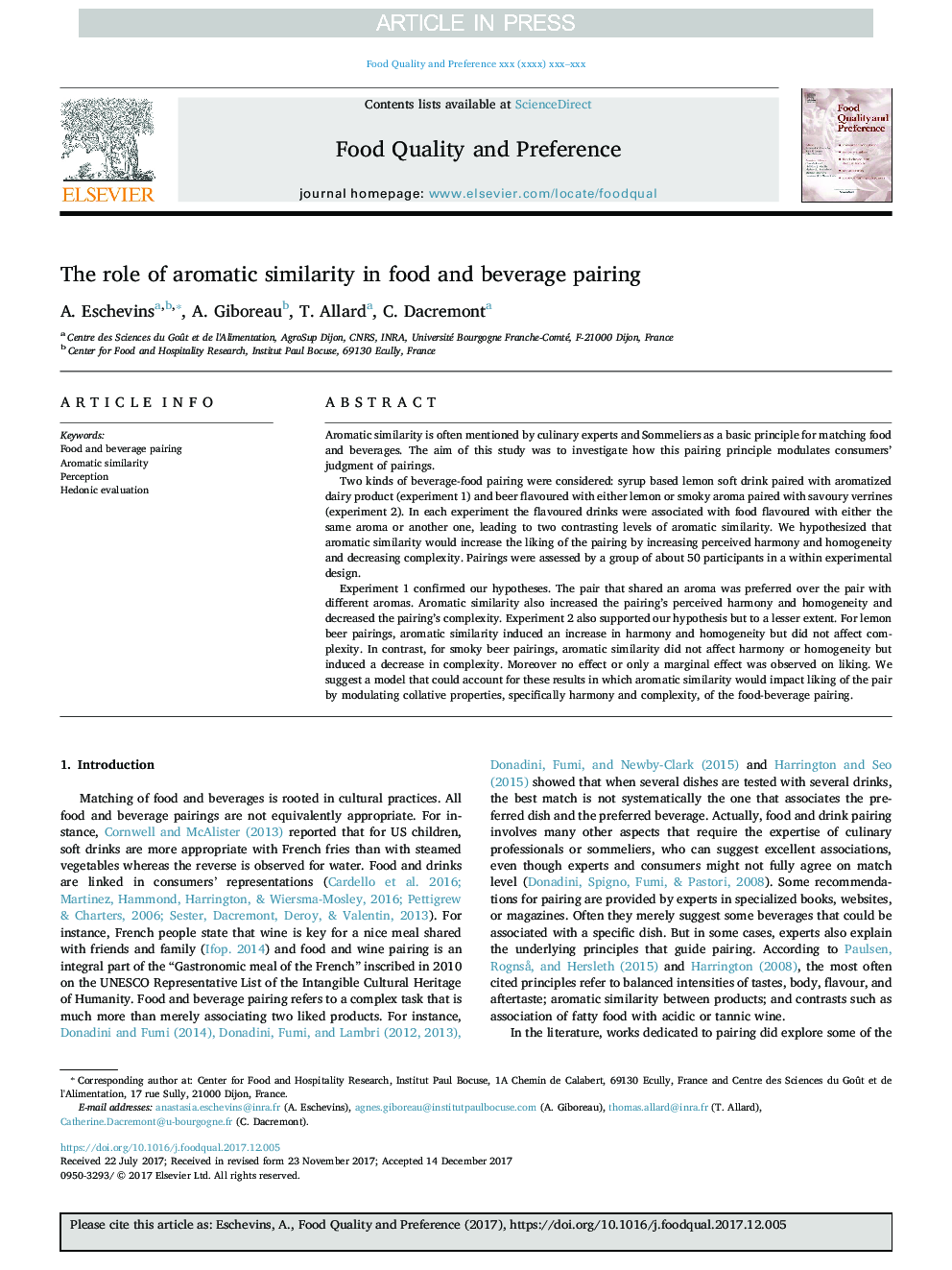| Article ID | Journal | Published Year | Pages | File Type |
|---|---|---|---|---|
| 8838535 | Food Quality and Preference | 2018 | 10 Pages |
Abstract
Experiment 1 confirmed our hypotheses. The pair that shared an aroma was preferred over the pair with different aromas. Aromatic similarity also increased the pairing's perceived harmony and homogeneity and decreased the pairing's complexity. Experiment 2 also supported our hypothesis but to a lesser extent. For lemon beer pairings, aromatic similarity induced an increase in harmony and homogeneity but did not affect complexity. In contrast, for smoky beer pairings, aromatic similarity did not affect harmony or homogeneity but induced a decrease in complexity. Moreover no effect or only a marginal effect was observed on liking. We suggest a model that could account for these results in which aromatic similarity would impact liking of the pair by modulating collative properties, specifically harmony and complexity, of the food-beverage pairing.
Keywords
Related Topics
Life Sciences
Agricultural and Biological Sciences
Food Science
Authors
A. Eschevins, A. Giboreau, T. Allard, C. Dacremont,
